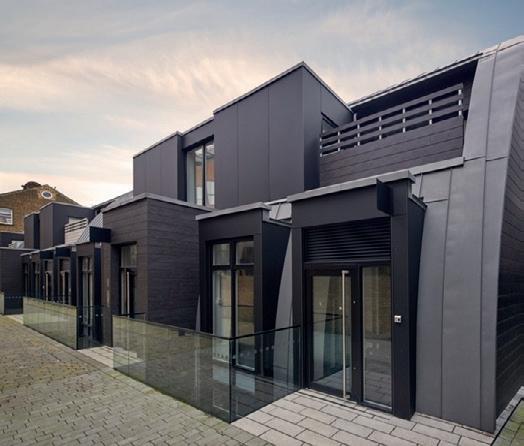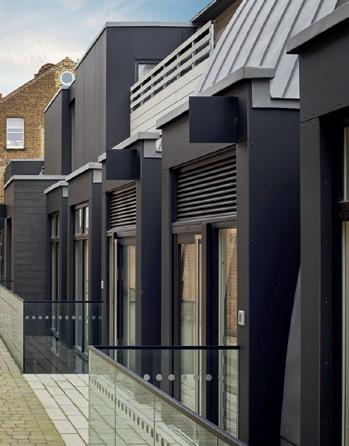
2 minute read
LEGAL & BUSINESS
JAMES BRETT

Advertisement
IS DIRECTOR OF LONDON-BASED
CONSTRUCTION CONTRACTOR
EDGELEY CONSTRUCTION
WHY THE PRE-CONSTRUCTION PHASE IS VITAL FOR AVOIDING UNFORESEEN COSTS AND DELAY

James Brett, Director of London-based construction contractor, Edgeley Construction, discusses the importance of building pre-construction into the main contractor’s package.
EDGELEY CONSTRUCTION
Delays and unforeseen costs are the nemesis of any project and all contractors. With financial penalties, squeezed margins and client relationships at stake, keeping the programme on time and on budget is a shared aim for all delivery partners.
A meticulous preconstruction phase, delivered by a contractor’s integrated, multi-disciplinary team, is a sound investment for both the developer and the contractor. It provides an opportunity to smooth out potential issues before they become problems on site, and to add value with buildability improvements.
Design and buildability
Even if a project has been expertly designed by an architect, there is usually an opportunity to make improvements at preconstruction stage that could help the developer save both time and money on their project. This includes identifying value engineering opportunities as well as checking for any potential buildability issues.
In-house design of any temporary works during the pre-construction phase ensures that they are aligned to the contractor’s method statement and enables sequencing to be coordinated around both temporary works as well as construction.
Site investigations are also an important part of the pre-construction phase, even if there are no known contamination or remediation requirements. This includes gaining a clear picture of utility infrastructure, along with other buried considerations, such as archaeological remains. In London, we must even be mindful of unexploded bombs, as these are not uncommon and can cause a hazard and delays.
Party wall agreements
It’s essential that all precommencement planning conditions are met before a project begins on site to avoid any issues during the construction phase. This includes all party wall agreements, which can be a complex process for both congested and confined sites.
Early engagement with owners or occupiers of neighbouring properties is essential so that a schedule of conditions for the construction programme can be agreed. This will safeguard against any legal action that could be costly and potentially even put the project in jeopardy.
It is hugely beneficial for the construction contractor to lead this process because it enables the project team to feed planning requirements and party wall restrictions into the construction method statement. In this way, all operatives on site have absolute clarity on how they will work around any local restrictions or sensitivities.

Logistics
The pre-construction stage should also be used as an opportunity to anticipate any logistical challenges the project might involve so that these can be fully understood and addressed before the programme begins. This may include restricted access and storage, over-sailing limitations and working hours restrictions. Only by factoring these logistics requirements into project planning can the programme take account of any timing or sequencing impact they may have so that this is accounted for and unforeseen delays are avoided.
Avoid the unexpected
The unexpected is never good news on a construction site because it inevitably means delays and increased costs. By working with a construction partner that takes a thorough, integrated approach to all elements of pre-construction, developers can protect themselves from time and cost issues for a smoother, more accurate build programme.










